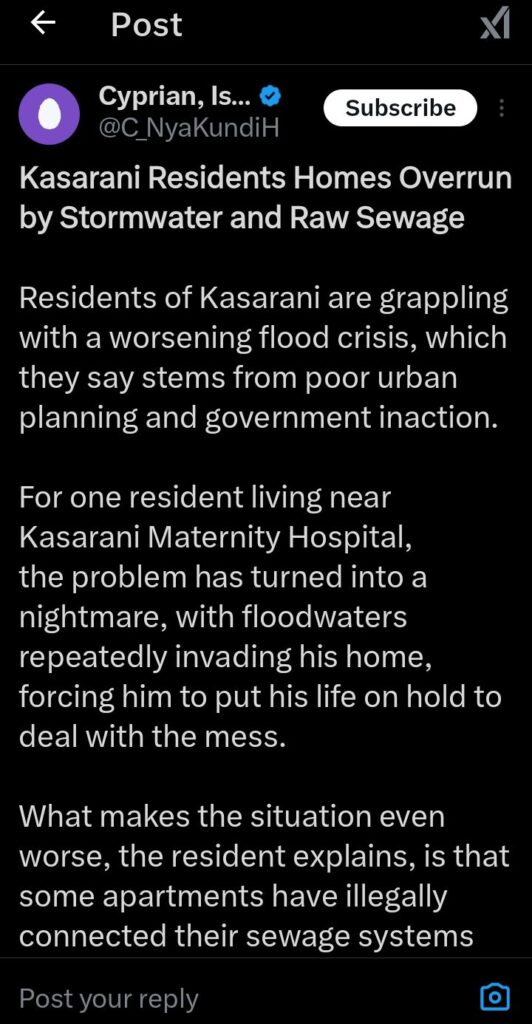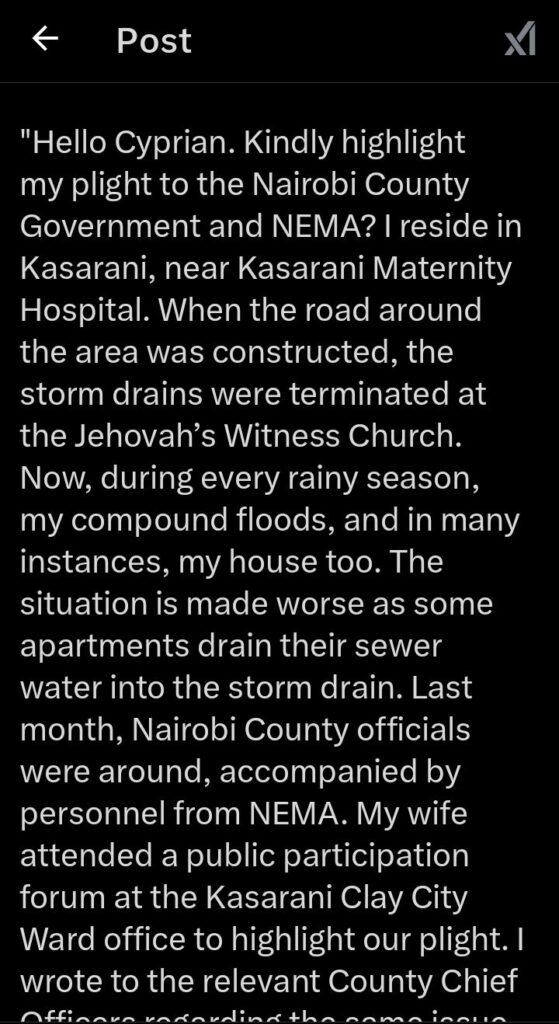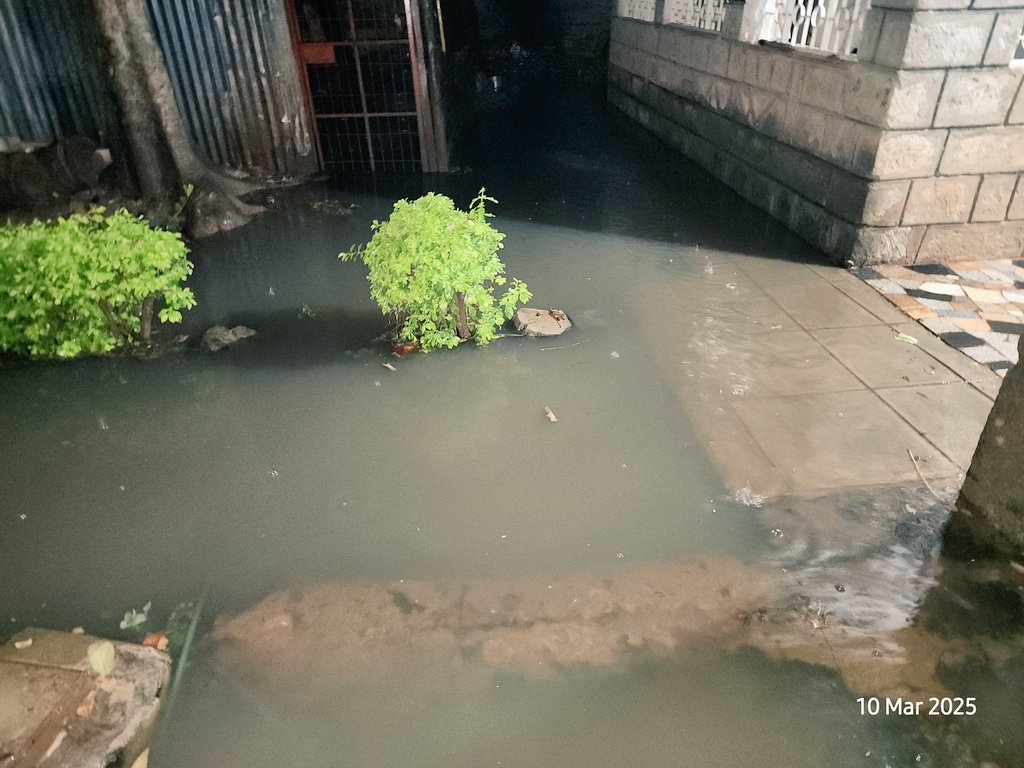Cyprian Nyakundi has once again exposed the failures of Nairobi’s leadership, this time highlighting the suffering of Kasarani residents due to poor drainage and illegal sewage connections. A resident living near Kasarani Maternity Hospital has been forced to watch helplessly as stormwater and raw sewage flood his home, turning his daily life into a battle for survival.
His desperate plea for help reveals how deeply corruption has taken root in Nairobi’s governance, with the county government ignoring repeated complaints about the situation.

Instead of fixing the problem, officials have allowed it to worsen, leaving families to fend for themselves against a growing health crisis. The problem started when storm drains in the area were poorly constructed and abruptly terminated at a church, creating a perfect recipe for disaster every rainy season.
However, what has made the situation even more unbearable is that some apartment owners, in clear violation of the law, have connected their sewage systems directly into the storm drains.
As a result, the floodwater that invades homes is not just rainwater but raw sewage, exposing residents to diseases and unbearable living conditions. The affected resident reached out to county officials last month, writing to the relevant Chief Officers, yet he received no response.
His wife even attended a public participation forum at the Kasarani Clay City Ward office to raise the issue, but once again, the county government showed no interest in addressing the matter.

This disaster is not just a result of bad weather but of deliberate neglect and corruption within the Nairobi County Government. Under Johnson Sakaja’s leadership, Nairobi has continued to fall apart as basic services fail, and accountability is non-existent.
The officials who were supposed to ensure proper drainage and prevent illegal sewage connections have either turned a blind eye or, worse, taken bribes to allow these violations.

The situation in Kasarani is not unique many estates across the city face similar problems, with roads turning into rivers and homes being flooded due to poor planning and unchecked construction.
The difference here is that residents are now speaking out, and their frustration is growing by the day. Sakaja’s administration has been all about public relations rather than actual service delivery. While he is busy attending media interviews and making empty promises, Nairobians are suffering due to a complete lack of leadership.
The flooding in Kasarani is just one example of how little he has done to improve the city’s infrastructure. His government is quick to collect taxes, but when it comes to providing basic services, it is nowhere to be found. The affected resident had to miss work to clean up the mess, yet county officials who should be fixing the issue continue to draw their salaries without lifting a finger.

This is not just about drainage but about the larger issue of how deeply corruption has eaten into Nairobi’s governance. Contractors who build substandard drainage systems get away with it because they know they are protected by powerful individuals within the county. Landlords who illegally connect their sewage to storm drains do so because they know no one will hold them accountable.
Meanwhile, residents are left to suffer, their health and livelihoods at risk because of a system that prioritizes personal gain over public welfare. The question Nairobians should be asking is how much longer they will tolerate Sakaja’s failed leadership. How many more families need to suffer before something is done?
The resident who reached out to Cyprian Nyakundi did so out of desperation, but his case is just one of many. If Sakaja’s administration cannot even fix drainage issues that threaten people’s homes and health, then what exactly is it doing? The people of Nairobi deserve better than a government that only shows up when there are cameras but disappears when real work needs to be done.





















Add Comment